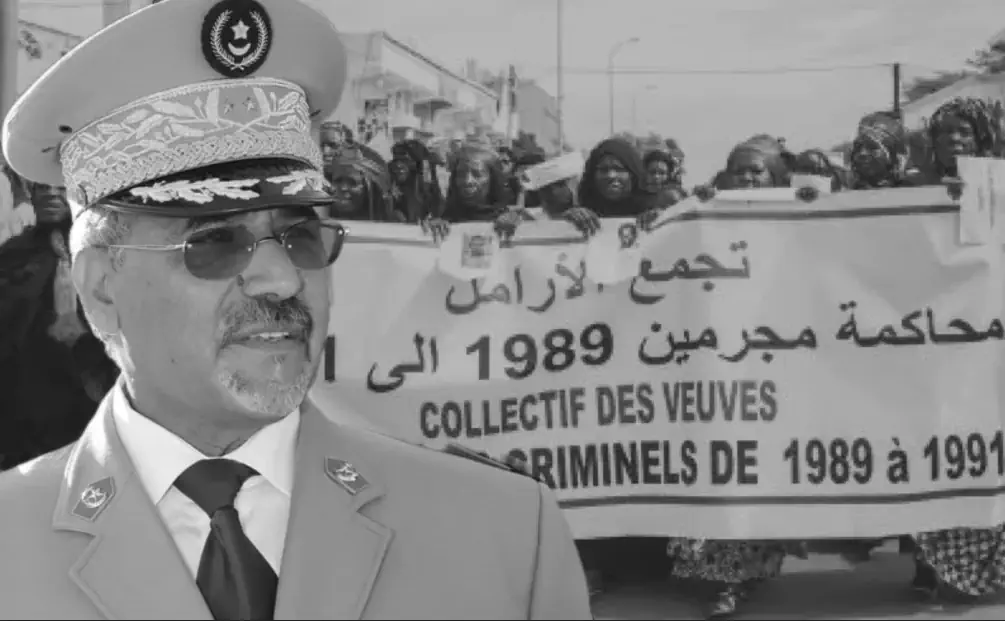Since the 1960s, successive Mauritanian governments have implemented policies of “Arabization” aimed at promoting Arabic culture and language at the expense of Black Mauritanians, including Halpulaar, Soninke, and Wolof communities. This systematic marginalization, though not explicitly codified in law, manifests as de facto discrimination, undermining the civil, cultural, and political rights of Black Mauritanians.

An ex-professor described the impact:
“Arabization is a key element in stripping Black Mauritanians of their political power, economic opportunities, and access to jobs.”
The policies have eroded opportunities in education, employment, and cultural expression, intensifying the marginalization of Black communities.
Freedom of Assembly and Association
The Mauritanian government has used Arabization to justify severe restrictions on Black Mauritanians’ right to assemble and associate. This discrimination is evident in practices that arbitrarily deny permits for Black gatherings, whether public or private, including baptisms, weddings, funerals, or cultural events such as theater, music, and dance.
While all gatherings theoretically require government authorization, in practice, only Black communities face consistent obstacles. A former teacher explained:
“In 1989, we were told we needed permission to hold a wedding celebration. There was no legal basis for this—it’s just a discriminatory practice against Blacks.”
This restriction is used to suppress the organizational capacity and cultural expressions of Black communities. Those who fail to obtain permits often face fines, police harassment, or arrests. Even mourning ceremonies have not been spared, with police disrupting condolences for political prisoners who died in detention, adding further distress to grieving families.
“It has long been recognized that an essential element in protecting human rights was a widespread knowledge among the population of what their rights are and how they can be defended.”
Boutros Boutros-Ghali
Cultural Suppression and Marginalization

Arabization policies have led to the exclusion of Black cultural and linguistic representation in public institutions and media. Black Mauritanians’ access to radio and television programming in their languages has steadily decreased, forcing them to rely on foreign broadcasts from Senegal, France, or the United States. Attempts to teach Pulaar, Soninke, or Wolof as national languages have been met with resistance, with the government using administrative barriers to undermine such initiatives.
A former member of an organization promoting Pulaar literacy described the challenges:
“Even after being recognized, authorities did everything to obstruct our work. We were denied funding and even barred from renting classrooms for evening courses.”
Education: A Tool of Marginalization
The Arabization of education has been a central feature of the state’s discriminatory policies. Beginning in 1965, the government required all students to learn Arabic in secondary schools, sparking protests from Black students who saw this as an attempt to disadvantage them academically and culturally. The 1966 student strike in Nouakchott and Rosso, followed by violent clashes, marked the first overtly racial confrontation in the country’s education system.
Subsequent decrees, such as the 1979 “Circulaire 02”, increased the weight of Arabic in school curricula, further alienating Black students. Resistance to these measures was met with harsh repression, including arrests and the dismantling of experimental programs in national languages like Pulaar, Soninke, and Wolof. A former teacher explained:
“This was not about language; it was about race and power. Even fluent Arabic speakers among us could never hope to achieve the same opportunities as Beydanes.”
The Constitution and Linguistic Inequality
The 1991 Constitution, adopted through a referendum, institutionalized Arabic as the official language while designating Pulaar, Soninke, and Wolof as national languages without offering equal status. This reinforced the dominance of Arabic and excluded Black communities from meaningful participation in public life.
Arrests and Intimidation of Black Activists
The suppression of Black activism intensified after the 1986 publication of the “Manifesto of the Oppressed Black Mauritanian”, which detailed systemic grievances. This triggered a wave of arrests, detentions, and torture of Black intellectuals, activists, and community leaders. These arrests were often arbitrary, violating Mauritanian laws that limit pre-trial detention to 48 hours (extendable to 30 days in cases of state security threats).
A detainee described the conditions:
“We were kept beyond legal limits, denied access to lawyers or family visits, and subjected to torture. The government’s goal was clear: to silence us and break the spirit of our community.”
The policies of Arabization have entrenched systemic discrimination against Black Mauritanians, suppressing their cultural, educational, and political rights. By weaponizing language and education, the Mauritanian government has effectively marginalized Black communities while presenting its actions as national unity efforts. To ensure equity and justice, Mauritania must:
- Recognize and protect linguistic and cultural diversity in law and practice.
- Uphold the right to freedom of assembly and association for all communities.
- Revise discriminatory educational policies and promote inclusive curricula.
- Ensure accountability for the repression of Black activists and communities.
Addressing these issues is critical to fostering true national unity and eliminating racial and ethnic discrimination in Mauritania.




